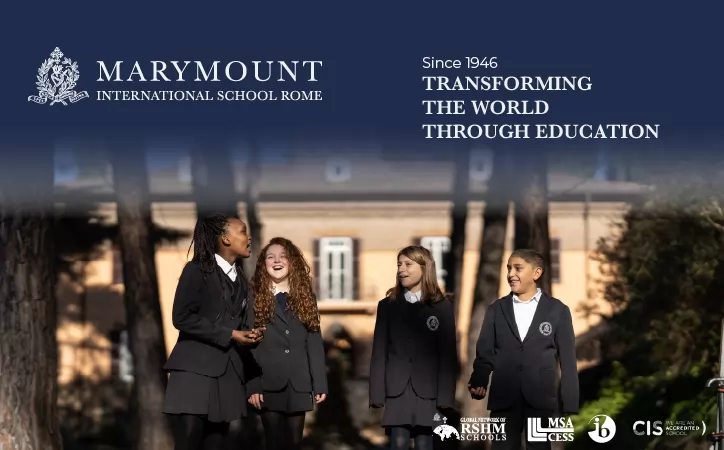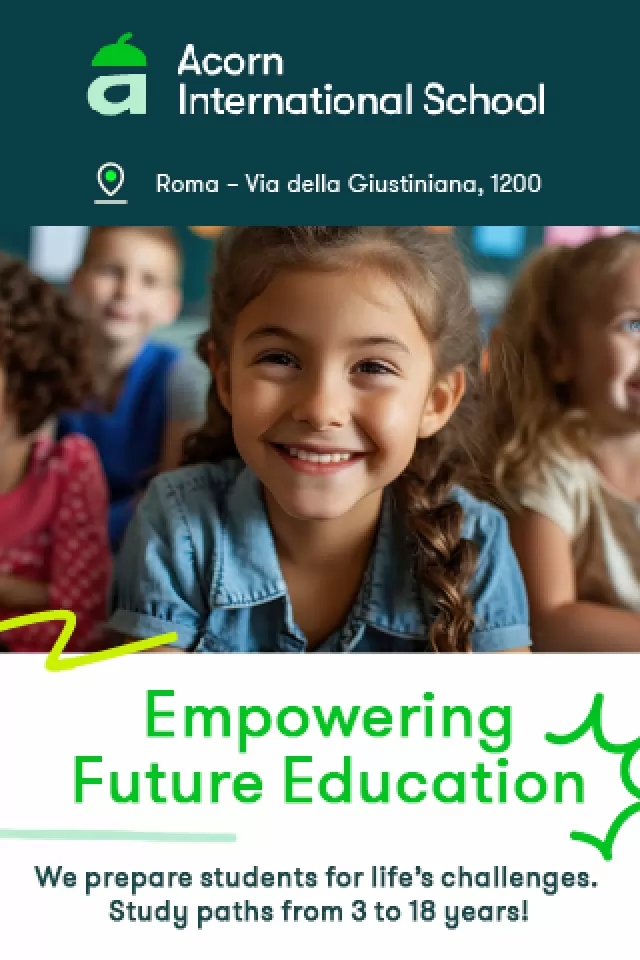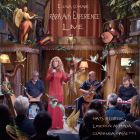Learning the three Rs at an Italian school.
Every year many English-speaking families from all over the world come, for one reason or another, to live and work in Rome. Most of them will not, at first, know Italian very well or even at all, and when these families have school-age children with them, there is the problem of what to do about school. Fortunately Rome is blessed with a wide choice of English-language international schools, and for teenage children one of these may be the best choice. All the international schools can be classified as good with strong academic programmes and a bewildering* number of extra-curricular activities. And, of course, the advantage of already speaking the same language is not to be dismissed lightly. However, there are some disadvantages and it is interesting to examine them.
First, the cost. These English-language international schools are private institutions and their only income is from the fees charged to parents. This means that the fees are inevitably very high. Some families will have all or part of these costs paid by the organisation for which they are working, but others will have to pay out of their own pockets and this can be, at times, a real problem for the family finances. Secondly, the schools are generally situated on the outskirts of Rome and there may be a deal of travelling required to get there and back. Many children, even those of a very tender age, will find themselves having to travel for an hour or more twice a day. In the same vein, children will make friends who, coming from all over Rome, will nearly always live far from home; therefore meeting these friends outside school time becomes problematic and parents find themselves being called on to ferry their children about the city at weekends or after school, for parties and the like. Older, teenage children can usually cope with all this on their own but primary pupils sometimes find it difficult, so parents wanting their children to grow up with a normal group of friends have to devote a great deal of time to helping out.
When our two children, now aged nine and six-and-a-half, reached school age, we had to make a decision: an international English-speaking or an Italian state school? At home we speak English nearly all the time so the children could easily have gone to one of the international schools. By chance there was a private Italian Montessori school in our road so for their pre-school we opted for the convenience of having the kids close to home. And very convenient it was too, with no time lost in travelling and lots of friends for the children nearby.
The same decision was taken for the state primary school, and for the same reasons. Their school is a mere 300 m from home and they have a splendid group of friends who all live within easy walking distance.
The state primary school (scuola elementare) offers a very sound education based on the three Rs (reading, writing and arithmetic), with many other subjects such as astronomy, geography, mythology, science, music and history taught as well. There is an hour or two of religious education each week, but this is optional and pupils not wanting it are given the opportunity to follow some other subject. Classes consist of 22 or 23 pupils, and each group has two teachers, one for Italian and the other for mathematics; they share the other subjects between them. School may be part-time (modulo), that is from 08.30 to 13.30 including Saturdays and with homework every day, or it can be full-time (tempo pieno), from 08.30 to 16.15 (no Saturday school) and with homework only at weekends. School fees are non-existent but a small charge is made for the many after-school activities, from judo and karate to rhythmic gymnastics and dance. When term ends for the summer there is another attraction at this school. For a small charge from 08.30 until 16.30 the children are taken from the school to the local park where they are kept busy with games and competitions run by properly-qualified teachers. This is very helpful as it keeps the pupils occupied and well looked after until parents are in a position to take the whole family on holiday.
Quite clearly English-speaking parents will tend to avoid sending their children to an Italian primary school because their children do not speak Italian. Rest assured, a child of primary school age, inserted into the full immersion situation of an Italian school, will be speaking fairly fluent Italian within three weeks and be completely fluent by the end of the year with no problems. The problems are the parents, and it is up to them to learn Italian as quickly as possible in order to consult with teachers and the educational authorities. Many English-speaking friends and colleagues have still not managed to learn more than the most meagre rudiments of the Italian language. Like Frances Cornfords Fat Lady seen from a Train they are missing so much and so much. If you find yourself lucky enough to be living in this beautiful city with these wonderful people why not take advantage of the opportunity to learn the language and know the people. And one of the best ways of doing that would be to send your younger children to an Italian state primary school.
For summer camps at international schools see On the agenda, page 23.
For a list of international schools see The Rome Education Guide 2005 available at international bookshops or from Wanted in Rome, Via dei Delfini 17.
For students of English.
Below are some idiomatic words and phrases from the text above to improve your English. Please write (in English or Italian) to editorial@wantedinrome.com if you have any comments, suggestions or difficulties.
Bewildering - perplexing
Extra-curricular - outside the normal school programme
Dismissed lightly - rejected with little thought
Pay out of their own pockets - pay themselves
Very tender age - very young age
In the same vein - for the same reason
Ferry their children - transport their children
Within easy walking distance - close by
A very sound education - a good education
Rest assured - do not worry

















